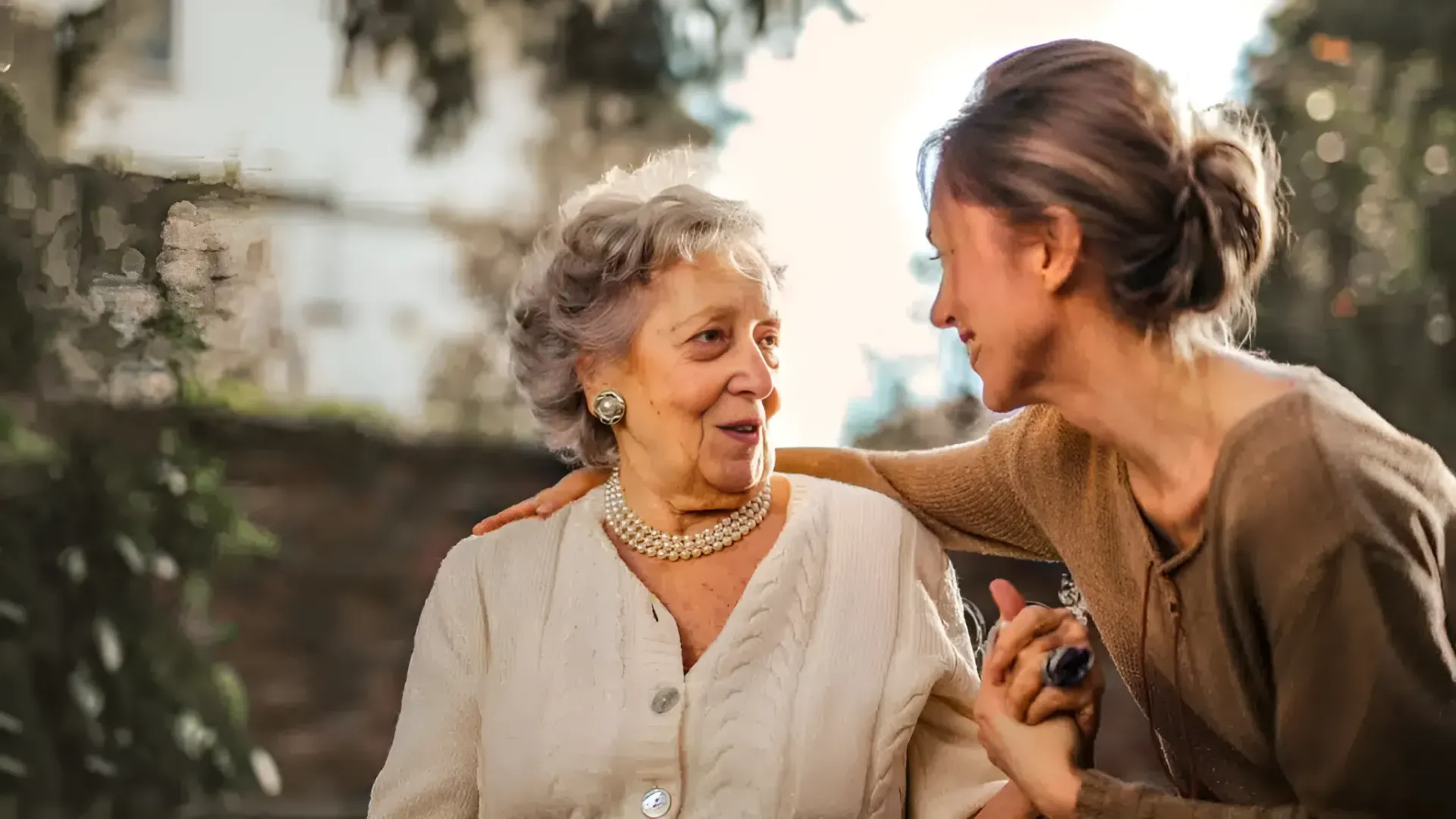How Might an Assisted Living Community Affect the Health of a Senior Citizen?

An assisted living community can positively impact your health by offering structured exercise programs that boost cardiovascular health and muscle strength. You’ll benefit from a routine that reduces anxiety and the risk of cognitive decline, with access to healthcare professionals for timely mental health support. Social interactions within the community enhance emotional well-being and delay dementia. Nutritionally balanced meals tailored to your needs and a safe environment with emergency systems guarantee holistic care. These combined elements create a nurturing space where you can thrive physically and mentally. To discover more about these benefits, continue exploring the specifics.
Key Takeaways
- Structured exercise programs improve cardiovascular health, bone density, and muscle mass.
- Routine and social interaction reduce anxiety, depression, and cognitive decline.
- Balanced meals tailored to dietary needs enhance overall nutrition and health.
- Secure environments with emergency systems and trained staff to ensure safety and quick response.
- Engaging in activities and social connections fosters a sense of belonging and emotional well-being.
Physical Health Benefits
One of the primary physical health benefits of assisted living communities is access to regular, structured exercise programs tailored to senior citizens’ needs. These programs are designed to improve mobility, balance, and overall physical strength, reducing the risk of falls and injuries. Research shows that regular physical activity in older adults can significantly improve cardiovascular health, bone density, and muscle mass.
Many assisted living facilities offer low-impact, easy-on-the-joint activities like yoga, tai chi, and aquatic exercises. These are ideal for maintaining flexibility and promoting relaxation. Additionally, the consistency of scheduled activities ensures that seniors remain active, combating the sedentary lifestyle often accompanying aging.
Furthermore, participating in group exercise sessions fosters a sense of community and accountability, making it easier to stay motivated. The presence of trained staff and medical professionals during these activities provides an added layer of safety and reassurance.
Mental Health Impacts
In addition to physical health benefits, assisted living communities also play a pivotal role in enhancing the mental well-being of senior citizens.
You might find that the routine and structure provided in these communities can significantly reduce anxiety and depression. A predictable daily schedule can create a sense of control and security, which is vital for mental health.
Furthermore, access to healthcare professionals within the community means that any mental health issues can be promptly attended to. For instance, early interventions for conditions like depression or anxiety can prevent them from deteriorating.
Medication management services make sure that you take the proper medications at the correct times, reducing the risk of cognitive decline due to improper medication use.
Engagement in stimulating activities such as art classes, puzzle-solving, and exercise programs can keep your mind active and sharp. Cognitive health is closely linked to mental well-being, and these activities can help delay the onset of dementia and other cognitive impairments.
Lastly, having a clean, safe, and well-maintained living environment can alleviate stress. Peace of mind comes from knowing that help is readily accessible, allowing you to focus on enjoying life rather than worrying about daily chores and safety concerns.
Social Interaction
A robust social network within assisted living communities dramatically contributes to senior citizens’ emotional and psychological health. You’ll find more opportunities for meaningful interactions when you’re part of an active community. Regular social contact can reduce feelings of loneliness and depression, which are common among isolated seniors. Studies show that social engagement can improve cognitive function and even delay the onset of dementia.
In assisted living communities, you can access various social activities like group exercises, arts and crafts, and communal dining. These activities are carefully designed to foster connections among residents, creating a sense of belonging and purpose. The staff often encourages participation, ensuring that everyone has the chance to engage.
Moreover, the emotional support you receive from peers who understand your experiences can be incredibly uplifting. Sharing your stories and listening to others builds a network of mutual support. This camaraderie can significantly boost your overall well-being.
In essence, the social environment in assisted living communities provides a buffer against mental health decline, helping you maintain a happier, more fulfilling life. It’s not just about living longer; it’s about living better.
Nutritional Support
Proper nutrition is essential to maintaining health and vitality in an assisted living community. When you move to this setting, you can access balanced and nutritious meals tailored to meet your dietary needs. Trained staff and dietitians work together to guarantee you receive meals that support your overall well-being, from managing chronic conditions like diabetes or hypertension to boosting your immune system.
Studies have shown that seniors with a diet rich in fruits, vegetables, lean proteins, and whole grains experience better physical health and cognitive function. You won’t have to worry about meal preparation or grocery shopping in an assisted living community. Instead, you can enjoy meals designed to provide excellent nutrition and hydration.
Personalized meal plans are often available, ensuring your preferences and medical requirements are met.
Additionally, communal dining allows you to socialize while eating, enhancing your overall dining experience and mood.
| ASPECT | INDEPENDENT LIVING | ASSISTED LIVING |
|---|---|---|
| Level of care provided | Focuses on social needs and independence; limited medical and supportive care services. | Provides assistance with activities of daily living (ADLs) and access to medical and supportive care services. |
| Cost structure | Requires an entrance fee and monthly fee for maintenance and amenities. | Rental-based with monthly fees covering services and personal care assistance. |
| Community design | Large campuses with multiple buildings spread out, offering more space and distance between residences. | Smaller footprint with most resident needs provided within the building, including memory care programs for individuals with cognitive impairments. |
| Family involvement | Primarily resident-driven decisions with encouragement for family involvement in the community. | Active family involvement, especially for residents with dementia, including participation in care planning processes. |
| Amenities and programming | Flexibility in dining options and programming. | All-inclusive meals and tailored programming, particularly in memory care programs. |
Safety and Security
Beyond maintaining proper nutrition, ensuring your safety and security is essential in an assisted living community. These facilities are designed to minimize risks and provide a secure environment for seniors. Research shows that falls are a leading cause of injury among older adults. However, assisted living communities implement handrails, non-slip flooring, and emergency call systems to reduce these risks.
Moreover, staff is trained to respond to emergencies promptly. They’re equipped with the knowledge to handle situations such as medical emergencies, ensuring you receive immediate care when needed. Facilities also often have 24/7 security personnel, surveillance cameras, and controlled access to keep unauthorized individuals out, providing an added layer of safety.
Medication management is another vital aspect. Improper medication use can lead to severe health issues. Still, in an assisted living community, trained professionals oversee your prescriptions to ensure you take the proper doses at the correct times. This reduces the risk of adverse drug interactions and increases overall well-being.
Ultimately, the thorough safety measures protect you from physical harm and give you peace of mind, allowing you to enjoy a higher quality of life.
Frequently Asked Questions
What Are the Costs Associated With Assisted Living Communities?
Costs for assisted living communities vary widely, typically from $2,500 to $6,000 monthly. Factors like location, level of care, and amenities play a significant role.
It’s essential to assess your loved one’s specific needs and budget. Some communities offer financial assistance or accept long-term care insurance.
Always review contracts carefully to understand what’s included and what may incur additional fees.
How Do Assisted Living Communities Handle Medical Emergencies?
In assisted living communities, staff are trained to guarantee medical emergencies are handled efficiently. They typically have protocols, such as immediate first aid, contacting emergency services, and notifying family members.
Many communities also have medical professionals on-site or on-call to provide swift medical intervention. This systematic approach guarantees residents timely care, minimizes health risks, and promotes a safe living environment.
Can Pets Be Brought to Assisted Living Communities?
Yes, many assisted living communities do allow pets. You’ll find that having a pet can provide emotional support, reduce stress, and even lower blood pressure.
Always check the specific policies of the community you’re considering, as they can vary. Some places might restrict the types, sizes, or numbers of pets.
Ensuring your pet’s compatibility with the environment is also essential for everyone’s well-being.
What Types of Activities Are Typically Offered in Assisted Living Communities?
In assisted living communities, you’ll find a variety of activities designed to promote physical, mental, and social well-being. These include exercise classes, arts and crafts workshops, social events, and educational programs.
Evidence suggests that such activities can enhance cognitive function, boost mood, and improve overall health. Compassionate staff guarantee that these activities are accessible, enjoyable, and tailored to meet each resident’s needs and interests.
Are Transportation Services Available for Residents in Assisted Living Communities?
Yes, transportation services are typically available in assisted living communities. They usually offer scheduled transportation for medical appointments, grocery shopping, and social outings.
Reliable transportation helps ensure you don’t miss important healthcare visits and stay socially active, which is essential for overall well-being.
These services are designed to provide independence and ease, prioritizing your health and safety in your daily life.
Conclusion
Moving into an assisted living community can significantly enhance physical health, mental well-being, and social life. You’ll benefit from improved nutrition and a safer environment, reducing the risks of accidents and emergencies.
These communities are designed to support your overall health, providing expert care and a compassionate, engaging atmosphere. Embrace this change, a proactive step toward a healthier, more fulfilling life.










